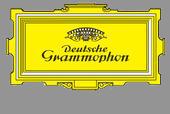The "Gramophone" in Deutsche Grammophon
It was as a fairground attraction that gramophones first excited wide-eyed amazement at fairs and sideshows more than a century ago. Raucous slogans proclaimed the virtues of the new recording technology: "Most powerful sound, loudest sound, most natural sound." The new-fangled talking machines, with their primitive cylinders and discs, were initially sold only in toy shops and bicycle shops. The inventor of the gramophone and disc, Emile Berliner, was quick to recognize the potential of "automatic music" and set about using the new technology to bring art and artists directly into the homes of people who other wise had no access to music of this kind.
Berliner's American patent for his new invention - the gramophone and a disc that could be played on it - is dated 29 September 1887. After a decade of experimentation , both technological and commercial, Berliner returned to Europe in 1898 and embarked on his plan of campaign by forming the Gramophone Company in London. In December 1898, together with his brother Joseph, he founded Deutsche Grammophon Gesellschaft in his native city of Hanover. There he built the first factory in the world for the exclusive manufacture of records. Within a decade, the company was producing several million records a year.
In 1941 Deutsche Grammophon was taken over by the electronics giant Siemens & Halske. Siemens's managing director, Ernst von Siemens, was well known for his knowledge and love of classical music, and it was this private passion that he now turned to the benefit of the record company. In 1962 the recording arm of Siemens linked up with the Dutch firm of Philips to create the DGG/PPI Group, which in 1971 led in turn to the creation of PolyGram. Siemens withdrew from the group in 1987, leaving Philips with a majority shareholding.
In 1998, the Seagram Company Ltd., based in Canada, acquired PolyGram and formed the Universal Music Group. Deutsche Grammophon is now part of Universal Classics.
With its repertoire center based in Hamburg, Deutsche Grammophon is represented by local Universal Music Companies in more than 40 countries.
Over the course of its history, Deutsche Grammophon has enjoyed triumphs and endured crises. Yet Deutsche Grammophon has survived all the ups and downs thanks to its roster of international artists, its comprehensive classical repertoire, its ambitious collected editions and its single-minded commitment to developing new recording techniques
